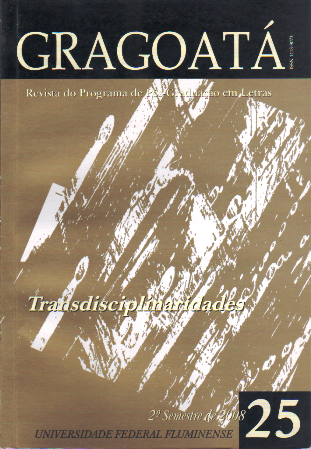Literatura e Espanhol/LE: a questão da alteridade
Palavras-chave:
Literatura hispânica. Espanhol/LE. AlteridadeResumo
Sabemos que múltiplas referências teóricas não só demonstram a importância da alteridade no âmbito dos estudos de cultura, filosofia, arte e literatura, mas também apontam um caminho em direção ao qual a reflexão em torno do espanhol como língua estrangeira vem conduzindo seus pesquisadores. Parece-nos que a questão basilar para todos os estudiosos de Espanhol/LE no Brasil é pensar que tipo de aspectos tanto lingüísticos quanto culturais estão envolvidos no processo de ensino-aprendizagem de uma língua que se mantém no tenso limiar entre a proximidade e a diferenciação. Por isso, o presente trabalho tentará traçar uma relação entre os estudos literários e o campo teórico da lingüística aplicada ao ensinoaprendizagem de Espanhol/LE, lançando mão da questão teórica da alteridade e discutindo a sua produtividade para ambas as áreas de reflexão – língua e literatura –, constitutivas da formação acadêmica do profissional de Letras com habilitação em Português-Espanhol.
Downloads
Downloads
Publicado
Edição
Seção
Licença
AUTORIZAÇÃO
Autores que publicam em Gragoatá concordam com os seguintes termos:
Os autores mantêm os direitos e cedem à revista o direito à primeira publicação, simultaneamente submetido a uma licença Creative Commons Atribuição 4.0 Internacional (CC BY 4.0), que permite o compartilhamento por terceiros com a devida menção ao autor e à primeira publicação pela Gragoatá.
Os autores podem entrar em acordos contratuais adicionais e separados para a distribuição não exclusiva da versão publicada da obra (por exemplo, postá-la em um repositório institucional ou publicá-la em um livro), com o reconhecimento de sua publicação inicial na Gragoatá.
A Gragoatá utiliza uma Licença Creative Commons - Atribuição CC BY 4.0 Internacional.











